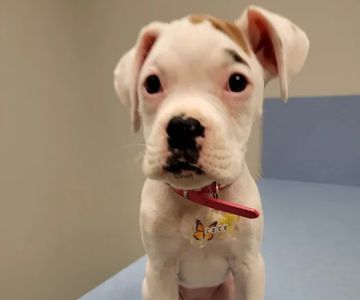Can I Become a Veterinarian with a Nursing Degree? Exploring Your Path to Veterinary Medicine
- Can Nurses Become Veterinarians?
- Advantages of a Nursing Degree for Veterinary Medicine
- Steps to Become a Veterinarian with a Nursing Degree
- Educational Pathway for Nurses Transitioning to Veterinary Medicine
- Real-Life Stories: Nurses Who Became Veterinarians
Can Nurses Become Veterinarians?
If you have a nursing degree and are passionate about animals, you may be wondering, "Can I become a veterinarian with a nursing degree?" The short answer is yes, but the journey to becoming a veterinarian with a nursing background will require additional education and training. While nursing and veterinary medicine share certain skills, such as patient care and attention to detail, veterinary medicine is a specialized field that focuses on animal health and treatment.
Veterinarians require a deep understanding of animal anatomy, diseases, treatments, and surgeries, so you will need to complete specific veterinary education after your nursing degree. However, your nursing experience can provide a strong foundation for the hands-on care aspects of veterinary practice.
Advantages of a Nursing Degree for Veterinary Medicine
Your nursing background can offer a significant advantage as you transition into veterinary medicine. Here are a few key benefits:
- Strong Healthcare Foundation: Nurses have a deep understanding of patient care, infection control, and medical procedures. These skills can be directly applied to veterinary care, especially in critical care situations.
- Hands-On Experience: Nurses are trained to work with patients, monitor their health, and administer medications. These hands-on skills are highly valuable in veterinary practice when treating animals.
- Patient Communication: Nurses are skilled communicators who can effectively interact with patients, families, and other healthcare professionals. This skill is transferable to working with pet owners and other veterinary staff.
In essence, the core competencies you developed as a nurse can be incredibly useful as you learn the intricacies of veterinary care. Many skills, such as administering injections, monitoring vitals, and providing compassionate care, will be beneficial in your veterinary career.
Steps to Become a Veterinarian with a Nursing Degree
While you already have a strong healthcare background, becoming a veterinarian will require you to undergo a few key steps:
- Research Veterinary Schools – Start by researching veterinary schools that accept non-traditional applicants. Some schools may have more flexible admissions policies for individuals with healthcare experience.
- Complete Prerequisite Courses – Veterinary programs often require specific science courses, such as biology, chemistry, and physics. If your nursing degree didn’t include these courses, you may need to complete them before applying.
- Gain Animal Experience – Many veterinary schools require applicants to have hands-on experience with animals. You can gain this experience by volunteering at animal shelters, working in animal clinics, or shadowing veterinarians.
- Prepare for Veterinary School Entrance Exams – Some veterinary schools require standardized entrance exams, such as the GRE (Graduate Record Examinations). Make sure to prepare and take any required exams.
- Apply to Veterinary School – After meeting all the prerequisites, you can apply to veterinary school and pursue your dream of becoming a veterinarian.
Educational Pathway for Nurses Transitioning to Veterinary Medicine
As a nurse transitioning to veterinary medicine, you will need to undergo veterinary training, which typically includes:
- Veterinary School: This is the main phase of your education where you will learn about animal anatomy, diseases, treatments, and surgery. Veterinary school typically takes 4 years to complete after finishing undergraduate courses.
- Clinical Practice: Veterinary students participate in hands-on clinical training where they work with animals under the supervision of experienced veterinarians. Your nursing background may allow you to adapt to this quickly, as you are already accustomed to working in a medical environment.
- Licensing Exams: Once you complete your veterinary degree, you will need to pass licensing exams to practice as a veterinarian. These exams test your knowledge of animal health and veterinary practices.
Keep in mind that the journey to becoming a veterinarian from nursing is challenging but achievable. Your nursing degree will provide a solid base of healthcare knowledge, which will be complemented by veterinary-specific education to ensure you are well-prepared for the challenges of animal care.
Real-Life Stories: Nurses Who Became Veterinarians
Many nurses have successfully transitioned into veterinary careers, bringing their healthcare expertise to the world of veterinary medicine. Take the story of Sarah, for example. Sarah was a registered nurse for over ten years before she decided to pursue her dream of becoming a veterinarian. She applied to a veterinary school that recognized her nursing experience, and after completing the required prerequisites and clinical training, she became a licensed veterinarian. Today, Sarah runs a successful animal clinic where she utilizes her nursing skills to provide compassionate care to both animals and their owners.
Sarah's story demonstrates that with dedication and the right educational path, nurses can indeed become veterinarians. It also shows that your nursing experience can be a huge advantage, particularly in terms of patient care and managing medical procedures. You don’t have to start from scratch – instead, you can build on your nursing background and apply it to veterinary medicine.











